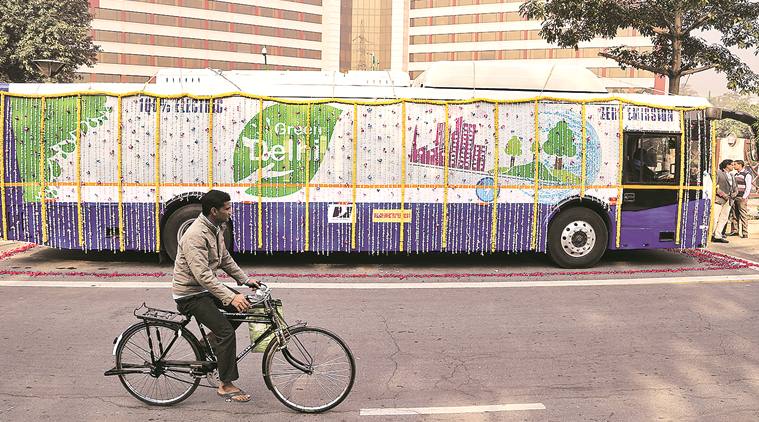
The Delhi government Saturday cleared a proposal to roll out 1,000 electric buses in the capital, in the most ambitious push towards electric mobility in the country’s public transportation so far.
The low-floor air-conditioned buses,which will be procured and operated by private players,will be rolled out in phases, an official statement said.
While the financial implications of the proposal were not immediately clear, the government said it will provide a subsidy of up to Rs 75 lakh per bus, or 60 per cent of the total cost of a bus, as per the Centre’s FAME scheme.
“This is an important step forward to convert a substantial number of daily travel trips into zero emissions. This needs advance planning for targeted electrification of bus routes and depots, infrastructure support for charging and planned deployment and fiscal strategies to make the programme sustainable,” Anumita Roy Chowdhury, Executive Director of the Centre for Science and Environment, said.
The Indian Express had reported last December that the techno-financial assessment report of the project pegs the cost of running each e-bus, which will come at a price of around Rs 1.75 crore each, at around Rs 111 per km.
The buses will be equipped with CCTVs, Automatic Vehicle Tracking System (AVTS), panic buttons and panic alarms, the government said, adding that it will put up charging infrastructure at six depots.
Following a round of full charging, every e-bus will be able to run up to 120 km.
“However, infrastructure for charging of electric buses within the depot and the housing of requisite numbers of charging units shall be the responsibility of the concessionaire. The arrangements to provide power infrastructure at intermediate charging points along bus routes will also be the responsibility of the city,” the statement added.
The first set of tenders are expected to be released within a week, and the initial lot of electric buses are expected to hit the streets before the end of 2019, it added. Delhi has around 5,500 buses currently, as against the requirement of 11,000 mandated by the Supreme Court.